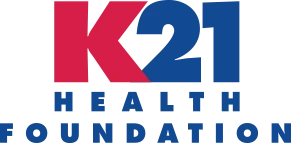Is your non-profit looking for more funding? Grants can be provided by the government, private foundations, or public charities. But to obtain a grant from one of these funders, your organization must submit a formal grant proposal.
Grant writing can sound like a daunting task, but putting in the time and effort can take you a long way. Here are some tips for making your proposal strong and persuasive:
Before You Begin
- Do your research
Learn the mission of the funder, the types of projects they typically fund, and their deadlines. Your goal is to make sure that your mission aligns with theirs.If another organization has a project similar to yours, don’t despair. Funders often have a broad knowledge of programs and services available in their community. If you tell your funder that your project is unique when it isn’t, they’re likely to know that, so be honest and thorough.
- Make contact and/or develop a relationship with the funder
Call or email the grant coordinator or program officer before you start an application. Take a couple minutes to explain your ideas and ask if they believe your project fits their mission. You can also ask for tips or suggestions on getting your proposal through. Keeping this contact throughout the process is beneficial.
- Pay attention to details
Each funder typically has requirements for page length, typeface, page margins, and other proposal specifications. Read and follow all instructions provided, even if you have successfully applied before (things may have changed).
During the Writing Process
- Focus primarily on solutions
It can be easy to slip into a negative narrative about problems. Instead, introduce your solutions. Explain why your non-profit stands out and how you can make a real difference. Sell the heart of your mission. - Be clear and concise
Stay away from jargon in your grant proposal. Present a clear message that explains who you are and the problem you intend to solve—without over-complicated language or extra fluff to sound smart. And don’t assume the grantor knows what acronyms stand for. If you use them make sure to state what it is the first time you use it in a sentence. - Double-check, triple-check, and quadruple-check your budget
Having a financial plan is crucial to a successful grant proposal. Make sure your numbers add up and that the funds correctly support your project. Not sure how much to request? Holly Swoverland, the grant coordinator for K21, says, “Ask for what you need and be able to justify it.” Additionally, most funders require financial statements.
After the Proposal is Completed
- Check it again—and be on time
Send your proposal draft to someone to proofread and make sure that there are no spelling or grammar errors. When submitting, be sure to include the correct documentation. And don’t wait until the last minute to turn it in—be proactive and professional.
- Stay in communication
Respond quicky to any follow-up emails, complete paperwork in a timely fashion, and answer clarifying questions from the funder. This will help maintain a strong relationship and improve trust down the road.
Submitting a Grant to K21
Our goal at K21 is to financially partner with organizations who are impacting health and wellness in the community. For grant applicants, it is critical that we have a clear understanding of how K21’s mission will be advanced by supporting your project, program, or service, and the intended benefit(s) to residents of Kosciusko County. Learn more about our mission and grant process here.



